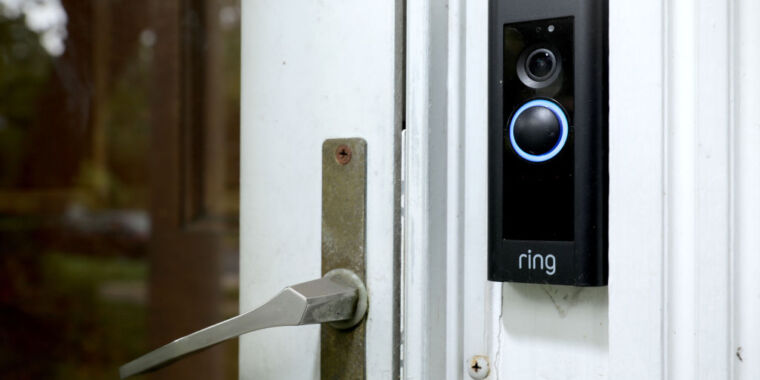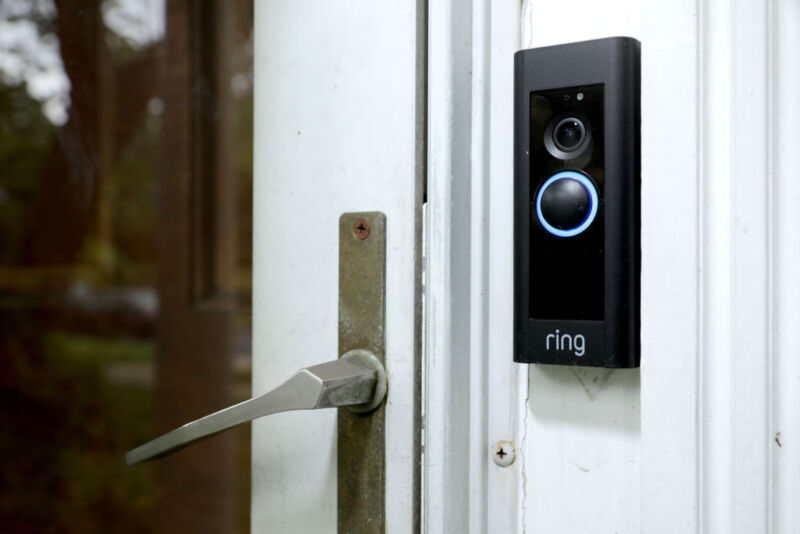$30 doorbell cameras have multiple serious security flaws, says Consumer Reports
Video doorbell security —
Models still widely available on e-commerce sites after issues reported.
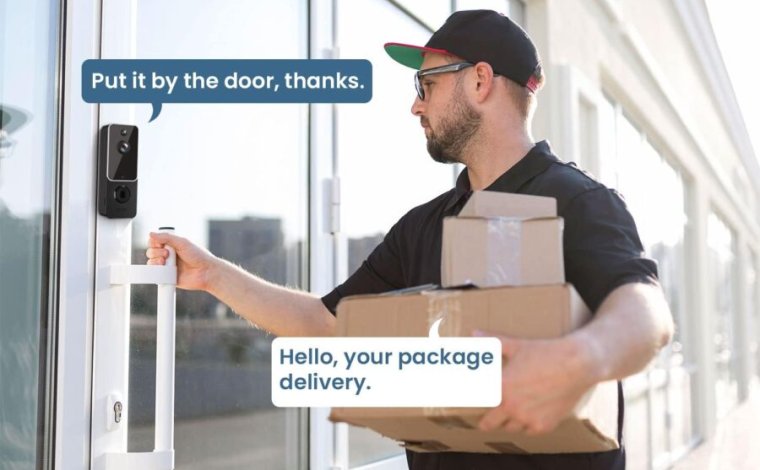
Enlarge / Consumer Reports’ investigation suggests that, should this delivery person press and hold the bell button and then pair using Eken’s app, he could see if other delivery people get such a perfunctory response.
Eken
Video doorbell cameras have been commoditized to the point where they’re available for $30–$40 on marketplaces like Amazon, Walmart, Temu, and Shein. The true cost of owning one might be much greater, however.
Consumer Reports (CR) has released the findings of a security investigation into two budget-minded doorbell brands, Eken and Tuck, which are largely the same hardware produced by the Eken Group in China, according to CR. The cameras are further resold under at least 10 more brands. The cameras are set up through a common mobile app, Aiwit. And the cameras share something else, CR claims: “troubling security vulnerabilities.”
Enlarge / The pairing procedure for one of Eken’s doorbell cameras, which allows a malicious actor quite a bit of leeway. Eken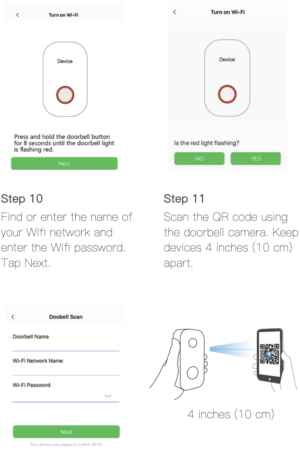
Among the camera’s vulnerabilities cited by CR:
- Sending public IP addresses and Wi-Fi SSIDs (names) over the Internet without encryption
- Takeover of the cameras by putting them into pairing mode (which you can do from a front-facing button on some models) and connecting through the Aiwit app
- Access to still images from the video feed and other information by knowing the camera’s serial number.
CR also noted that Eken cameras lacked an FCC registration code. More than 4,200 were sold in January 2024, according to CR, and often held an Amazon “Overall Pick” label (as one model did when an Ars writer looked on Wednesday).
“These video doorbells from little known manufacturers have serious security and privacy vulnerabilities, and now they’ve found their way onto major digital marketplaces such as Amazon and Walmart,” said Justin Brookman, director of tech policy at Consumer Reports, in a statement. “Both the manufacturers and platforms that sell the doorbells have a responsibility to ensure that these products are not putting consumers in harm’s way.”
CR noted that it contacted vendors where it found the doorbells for sale. Temu told CR that it would halt sales of the doorbells, but “similar-looking if not identical doorbells remained on the site,” CR noted.
A Walmart representative told Ars that all cameras mentioned by Consumer Reports, sold by third parties, have been removed from Walmart by now. The representative added that customers may be eligible for refunds and that Walmart prohibits the selling of devices that require an FCC ID and lack one.
Ars contacted Amazon for comment and will update this post with new information. An email sent to the sole address that could be found on Eken’s website was returned undeliverable. The company’s social media accounts were last updated at least three years prior.
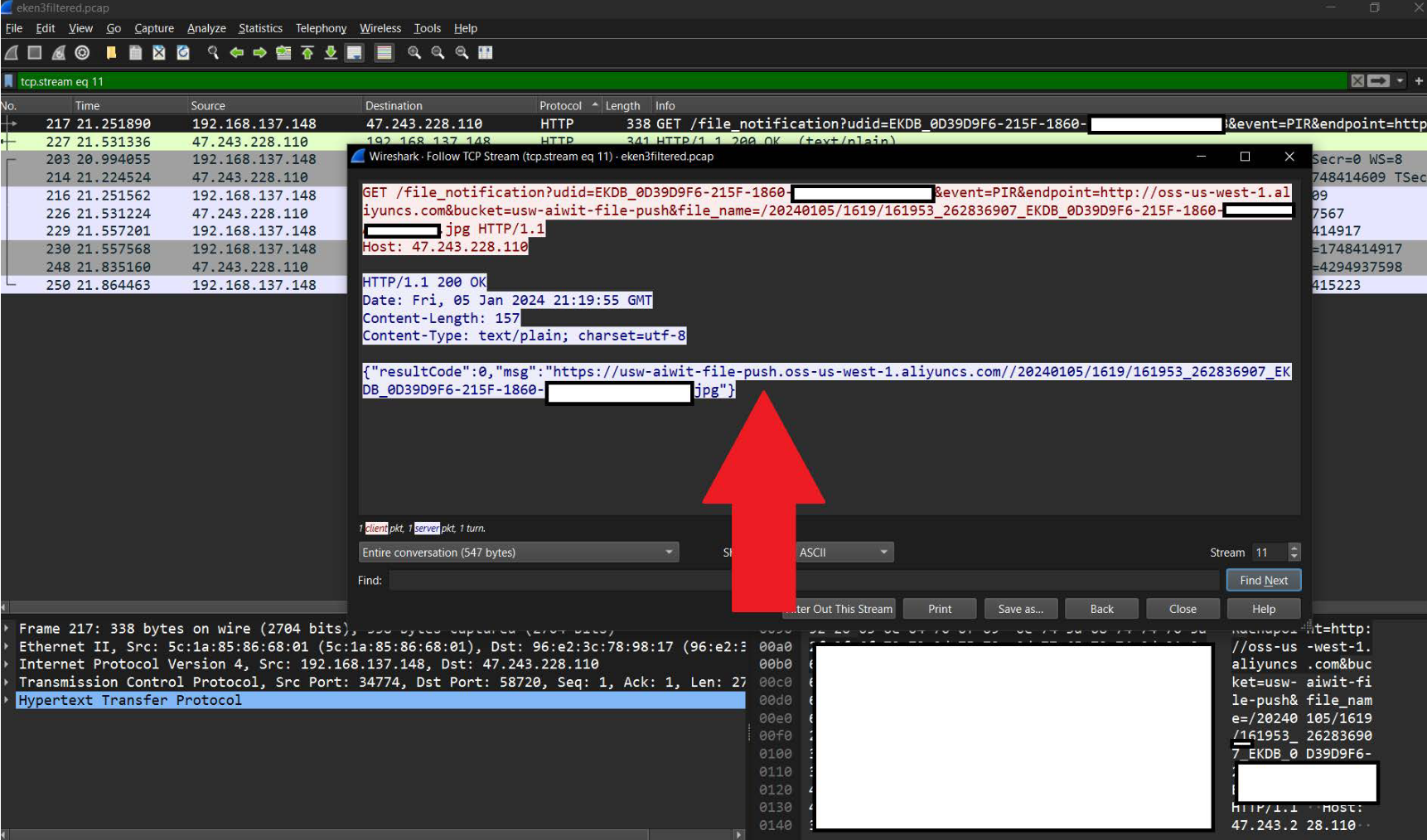
Consumer Reports’ researchers claim to have found JPEG file references passed in plaintext over the network, which could later be viewed without authentication in a browser.
Consumer Reports
CR issued vulnerability disclosures to Eken and Tuck regarding its findings. The disclosures note the amount of data that is sent over the network without authentication, including JPEG files, the local SSID, and external IP address. It notes that after a malicious user has re-paired a doorbell with a QR code generated by the Aiwit app, they have complete control over the device until a user sees an email from Eken and reclaims the doorbell.
With a few exceptions, video doorbells and other IoT cameras tend to rely on cloud connections to stream and store footage, as well as notify their owners about events. This has led to some notable privacy and security concerns. Ring doorbells were found to be pushing Wi-Fi credentials in plaintext in late 2019. Eufy, a company that marketed its “No clouds” offerings, was found to be uploading facial thumbnails to cloud servers to send push alerts and later apologized for that and other vulnerabilities. Camera provider Wyze recently disclosed that, for the second time in five months, images and video feeds were accidentally available to the wrong customers following a lengthy outage.
Listing image by Amazon/Eken
$30 doorbell cameras have multiple serious security flaws, says Consumer Reports Read More »

